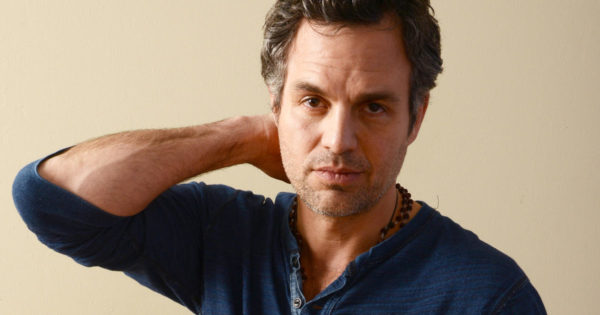
- Details
- By Rich Tupica
Hollywood actor Mark Ruffalo spoke Tuesday on the Protect the Sacred conference call, and offered his support and praise for the Native American community during the COVID-19 crisis.
The conversation, hosted by organizer Allie Young, was intended to open up dialog about how Native youth can help inform and support elders during this unprecedented pandemic. “Protect the Sacred is a campaign that I felt the need to organize to bring Native youth together,” Young said at the start of the online stream. “It’s a grassroots effort to educate and organize young people in this moment as we face this pandemic, the COVID-19 virus, which is hitting our Navajo Nation pretty hard.” From there, Young stressed the dire need to spread knowledge and care across Indian Country. “Everyday there is an increase in cases and deaths,” she added. “Right now we need to come together, especially the young folks. We can be leaders in this moment. Especially in our homes. We need to keep our elders home, we need to keep our families home. Right now, that’s an issue for us. This call is to talk with the community about why that’s important. Because we’re protecting the sacred.” The 13-person panel, which included adults and some youthful faces, discussed how everyone needs to protect the elders and their sacred knowledge. Below is a partial transcript of what Ruffalo, a non-Native, had to say from his home in New York City. Watch the full, 1-hour and 20-minute stream via Facebook, HERE.
Mark Ruffalo: “I’m honored to be here and thank our ancestors for hosting us and the great Navajo Nation for having me here. I was just listening to the Good Road, you’re probably saying, ‘What is Mark doing here with us?’ I just have to say, I had the great fortune of being at Standing Rock following this incredible youth movement and seeing all these youth leaders there. I learned so much about resilience.
This is the Native American Century that we’re living in now, because you’re sacred. We’re protecting the sacred, and what is that? That’s the grandparents and the knowledge your people have. You probably don’t look at it like such a treasure, some of the young people. But, it’s like asking a fish about water — they’ve been swimming in water their whole life. They don’t even know what water is. That’s what your sacred knowledge is like.
You have this wealth of knowledge and as a white man, I have been very touched by it and very moved by the power of it today. I know, this [the pandemic] is the one moment we get to turn it around on the older people, who’ve always told us what to do our whole lives—they tell us ‘stay inside’ when we want to go out and play. Now, we get to tell them, ‘Stay inside, Grandma and Grandpa! Take care of yourself. I know you want to go shopping, but you’ve got to stay inside.’ It’s the one moment you get to tell the elders what to do.
[At] Standing Rock ... I have to admit, I was very scared there. It was a very scary moment. Not unlike this, in a different kind of way. What I learned through prayer, a lot of prayer, and being together—was there was a gift in that real difficult time. It was when people came together. We get to look each other in the eyes.
We’re all so busy in our lives all the time, with our phones and technology. Now we get to spend time with our family. We get to look for the blessing out of this time, because there is one. I promise you. You will see it if you keep your head up and keep looking for it. Keep asking for it.
Another thing is, how do you spend the time, well you do have your technology, and I am looking forward to an explosion of Native American youths TikToks coming out [during this COVID-19 crisis]. My kids are doing it. They’re doing it. They’re stuck in the house. They’re crawling the walls. They’re using their social media, they’re getting informed. And we need to hear from Native youth, who I love and hold in such high regard.
Out of every difficult thing is blessing, a gift. So here we are, and I am honored to be here. I am going to pass it back now. I appreciate your time and you’re amazing. Just know you’re amazing and the whole world is looking at you in awe, so thank you.”
More Stories Like This
Native News Weekly (August 25, 2024): D.C. BriefsNavajo Nation Mourns the Passing of Former Vice President Rex Lee Jim
Deb Haaland Earns Endorsement From Communications Workers of America Local 7076
University Soccer Standout Leads by Example
Two Native Americans Named to Democratic Congressional Campaign Committee's“Red to Blue” Program
Help us defend tribal sovereignty.
At Native News Online, our mission is rooted in telling the stories that strengthen sovereignty and uplift Indigenous voices — not just at year’s end, but every single day.
Because of your generosity last year, we were able to keep our reporters on the ground in tribal communities, at national gatherings and in the halls of Congress — covering the issues that matter most to Indian Country: sovereignty, culture, education, health and economic opportunity.
That support sustained us through a tough year in 2025. Now, as we look to the year ahead, we need your help right now to ensure warrior journalism remains strong — reporting that defends tribal sovereignty, amplifies Native truth, and holds power accountable.
 The stakes couldn't be higher. Your support keeps Native voices heard, Native stories told and Native sovereignty defended.
The stakes couldn't be higher. Your support keeps Native voices heard, Native stories told and Native sovereignty defended.
Stand with Warrior Journalism today.
Levi Rickert (Potawatomi), Editor & Publisher
